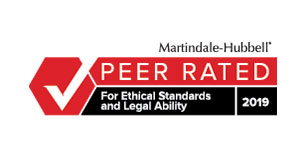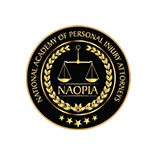For decades, women have used talcum powder on themselves and their infants. Although this seemingly harmless product was marketed as being safe enough even for babies, a growing body of evidence links talcum powder to ovarian cancer.
At Prim Law in Hurricane, West, Virginia, our aggressive product liability attorneys take on the manufacturers that knew of this risk and hid it from consumers. If you or a loved one used Johnson & Johnson’s baby powder or other products containing talc powder and have been diagnosed with cancer, we can help you fight for the compensation you deserve.
Research links talc powder to ovarian cancer
Talcum powder is frequently recommended to women for use in personal hygiene, especially in the perineal region. Since the 1970s, however, scientists have been concerned that the talc used in Johnson & Johnson’s baby powder (and similar products) was contaminated with asbestos, which is a known carcinogen.
Scientists aren’t the only ones who have expressed concern about talc being carcinogenic. Johnson & Johnson executives reportedly expressed concern in internal company memos starting back in 1971. Others have alleged that J&J knew the risks of talc and hid them, even going so far as to lobby the Food and Drug Administration (FDA) to withhold details from the public.
In many cases, talc and asbestos cross-contaminate naturally. When contaminated talc is used to make personal hygiene products, consumers risk exposure to asbestos through inhalation or entry through the genitals. According to the American Cancer Society (ACA), “talc that has asbestos is generally accepted as being able to cause cancer if it is inhaled.”
In 2016, Epidemiology published a report on the link between ovarian cancer and genital talc use. This case-controlled study showed that routine application of talc powder to the genital areas was associated with a 33-percent greater risk of developing ovarian cancer.
Another study published in 2000 by the Journal of the National Cancer Institute indicates that perineal talc is linked to a “modest” increase in the risk of serous ovarian cancer. Up to 70 percent of ovarian cancer cases are serous ovarian cancer, which is the most malignant form.
Talcum powder lawsuits
In 2020, Johnson & Johnson announced it would stop selling talc-based baby powder in the U.S. and Canada. This was a year after J&J recalled 33,000 bottles of talcum powder following news that the FDA found trace amounts of asbestos in the product. However, talc powder has harmed thousands of individuals over the past decades, and there have been several successful lawsuits filed against J&J:
- Giannecchini vs. Johnson & Johnson (2016): A jury awarded Deborah Giannicchini over $70 million in a lawsuit that accused J&J of “negligent conduct.”
- Slemp vs. Johnson & Johnson (2017): The plaintiff was awarded $5.4 million in damages, and the court awarded a further $105 million in punitive damages.
- Ingham et al. vs. Johnson & Johnson (2018): This lawsuit was brought by 22 women, who were awarded $550 million in damages and $4.15 billion in punitive damages.
As of 2021, there were approximately 38,000 pending lawsuits against J&J for their talc-powder products.
Who can file a talcum powder lawsuit?
If you have been diagnosed with ovarian and have used baby powder or a similar talc-powder product, you may be eligible to file a product liability lawsuit in West Virginia. Similarly, surviving family members of deceased ovarian cancer victims who used talc powder may also be eligible to sue for damages. An experienced product liability attorney can help you understand your legal options.
What kind of compensation can I sue for?
In West Virginia, you can seek damages from a manufacturer of dangerous products. At Prim Law, we help victims pursue financial compensation for medical bills, pain and suffering, and lost income. We can also seek punitive damages to help prevent future harm by negligent companies.
Contact Our Talc Product Liability Attorneys Today
At Prim Law Firm, PLLC, we fight big manufacturers whose products, like talc-based powders linked to cancer, cause illness and even death. Schedule a free consultation with our product liability attorneys at our Hurricane, West Virginia, office by calling 304-201-2425 or contact us online.




